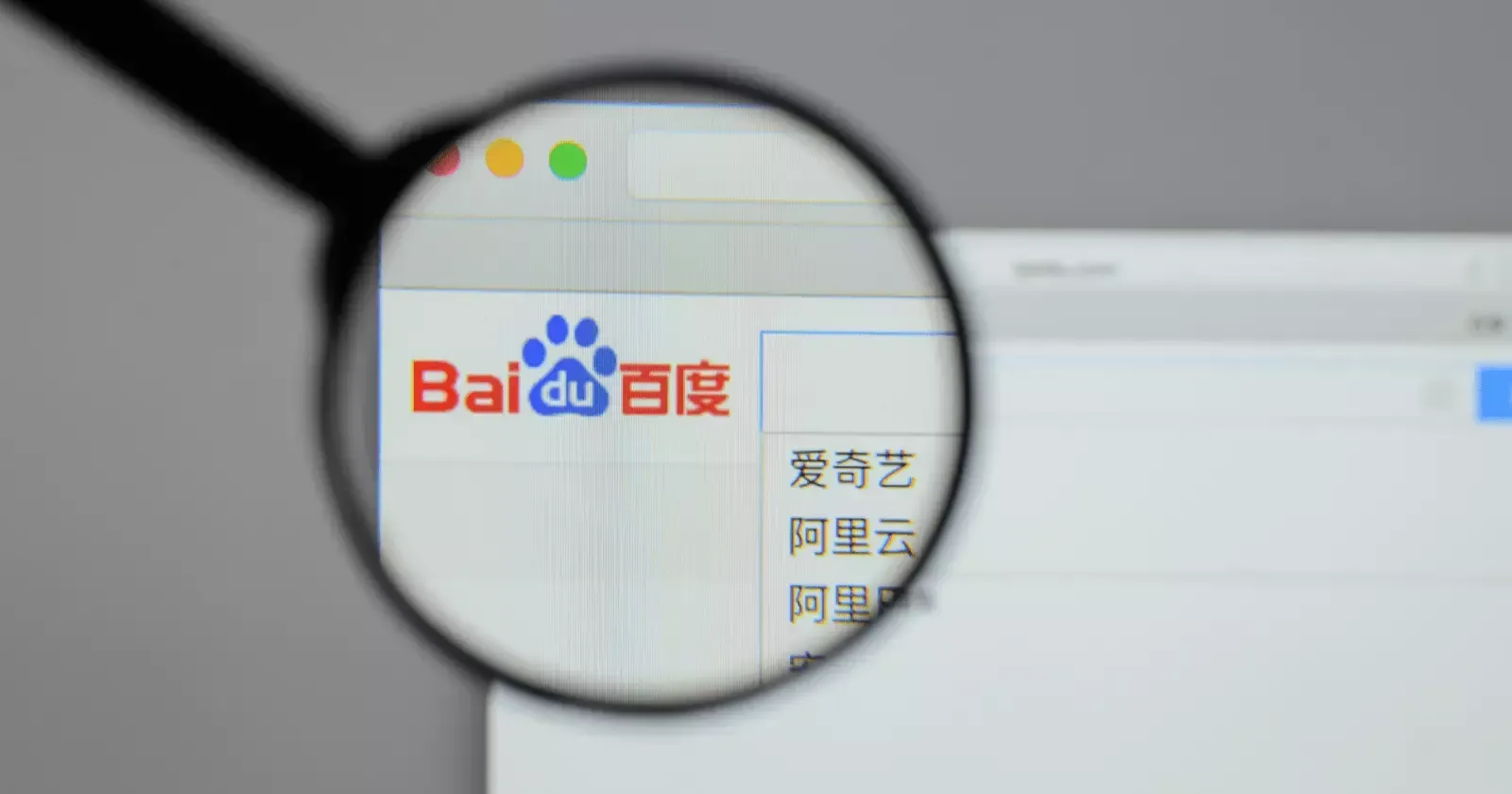The Rules of SEO in China Are Different
Here’s what you need to know about Baidu and Chinese search behavior.

Dominating search in China
If you’re used to building online visibility through Google, prepare for a shift. In China, Google is blocked and Baidu dominates the search landscape. But Baidu is not a direct copy of Google. It operates under different rules, expectations, and user behaviors.
For European companies looking to build visibility in China, understanding Baidu and Chinese SEO is essential. Done right, search can be a cost-effective way to generate traffic, build credibility, and convert interest into action. Done wrong, it’s a black hole of wasted resources.
What is Baidu?
Baidu is China’s leading search engine, controlling more than 70% of the desktop search market. It also powers a growing ecosystem of services, including Baidu Maps, Baidu Baike (a Wikipedia-like knowledge base), Baidu Tieba (a social forum), and Baidu Zhidao (a Q&A platform). In short: Baidu is more than search - it’s a full content and knowledge environment.
But Baidu is also deeply embedded in China’s internet policy framework. Indexing, ranking, and advertising are influenced by both technical and regulatory considerations.

How SEO on Baidu Differs from Google?
Baidu SEO is not a simple matter of copying your Western strategy. Key differences include:
- On-page SEO matters more. Baidu places heavy emphasis on page structure, metadata, and fast-loading mobile content. Sites must be optimized for simplified Chinese, hosted in China (or close by), and mobile-friendly (AMP is not used, but speed is crucial).
- Indexing is slower. Baidu crawlers are less efficient than Google’s. New sites or updated content may take weeks to be indexed, unless you use tools like Baidu Webmaster or submit URLs manually.
- Baidu prefers its own ecosystem. Platforms like Baidu Baike, Zhidao, and Tieba rank high in search results. This means part of your SEO effort should go into managing your brand’s presence on these platforms and not just on your own site.
- Content censorship and compliance matter. Content that doesn’t comply with local guidelines will either not rank or not be indexed at all. This includes sensitive terms, political language, or content that links to blocked platforms (like Facebook or YouTube).
The Role of Paid Search (SEM)
Like Google, Baidu offers sponsored listings through its advertising platform - Baidu Tuiguang. But SEM on Baidu comes with its own dynamics:
- Verification is mandatory. To run paid ads, you must go through an official verification process. This includes submitting a business license, domain registration, and other documents, often in Chinese.
- Ad formats vary. Baidu offers search ads, display banners, app-install ads, and even interactive formats within Baidu’s apps.
- Click prices vary by region and keyword. Major cities like Beijing or Shanghai often come with higher CPCs than second-tier cities.
- Trust signals matter. Baidu users are cautious. Verified badges, clear contact info, Chinese-language content, and an ICP license (Chinese hosting permit) all influence performance, both for organic and paid search.

The Pitfalls of Copy-Pasting Google Strategy
Many Western companies entering the Chinese market make the mistake of assuming their existing Google-based strategies will work on Baidu. This often leads to underwhelming results and unnecessary frustration. A key issue is hosting and load speed: websites hosted outside of China typically load too slowly to perform well on Baidu, which prioritizes locally (or regionally) hosted sites.
Language is another major barrier. Content that is machine-translated or poorly localized tends to fall flat, as Chinese users expect fluent, culturally attuned language that matches local search habits. Visibility is also skewed toward Baidu’s own ecosystem. Platforms like Baike, Zhidao, and Tieba frequently dominate the top results. Ignoring these channels means missing essential visibility opportunities.
Finally, Baidu’s search algorithm lacks the transparency of Google’s. Ranking fluctuations can happen without warning, and major updates are rarely communicated in English, making it harder for international brands to respond in real time.
A Smarter Approach to Chinese Search
Despite these challenges, Baidu remains one of the most effective platforms for long-term visibility, brand credibility, and lead generation in China, if approached correctly. Success starts with a strong technical foundation: fast, local hosting, a clean site architecture, and ideally an ICP license. Content must be original, well-written in simplified Chinese, and aligned with how real users search.
Equally important is building a presence within Baidu’s broader ecosystem, including contributions to Baike (encyclopedia), Zhidao (Q&A), and Tieba (forums) to establish authority. For many brands, the right approach is a balance of SEO and SEM, combining organic reach with paid precision. Performance should be monitored using Baidu-native tools like Webmaster Tools, rather than relying solely on Western analytics platforms.
Ultimately, Baidu is not “China’s Google.” It operates with its own logic, tools, and expectations, shaped by a different culture, regulatory landscape, and digital behavior. If your brand is serious about China, search visibility must be treated as a distinct strategic track. With the right local knowledge and setup, Baidu can be one of your most valuable digital assets in the market.




